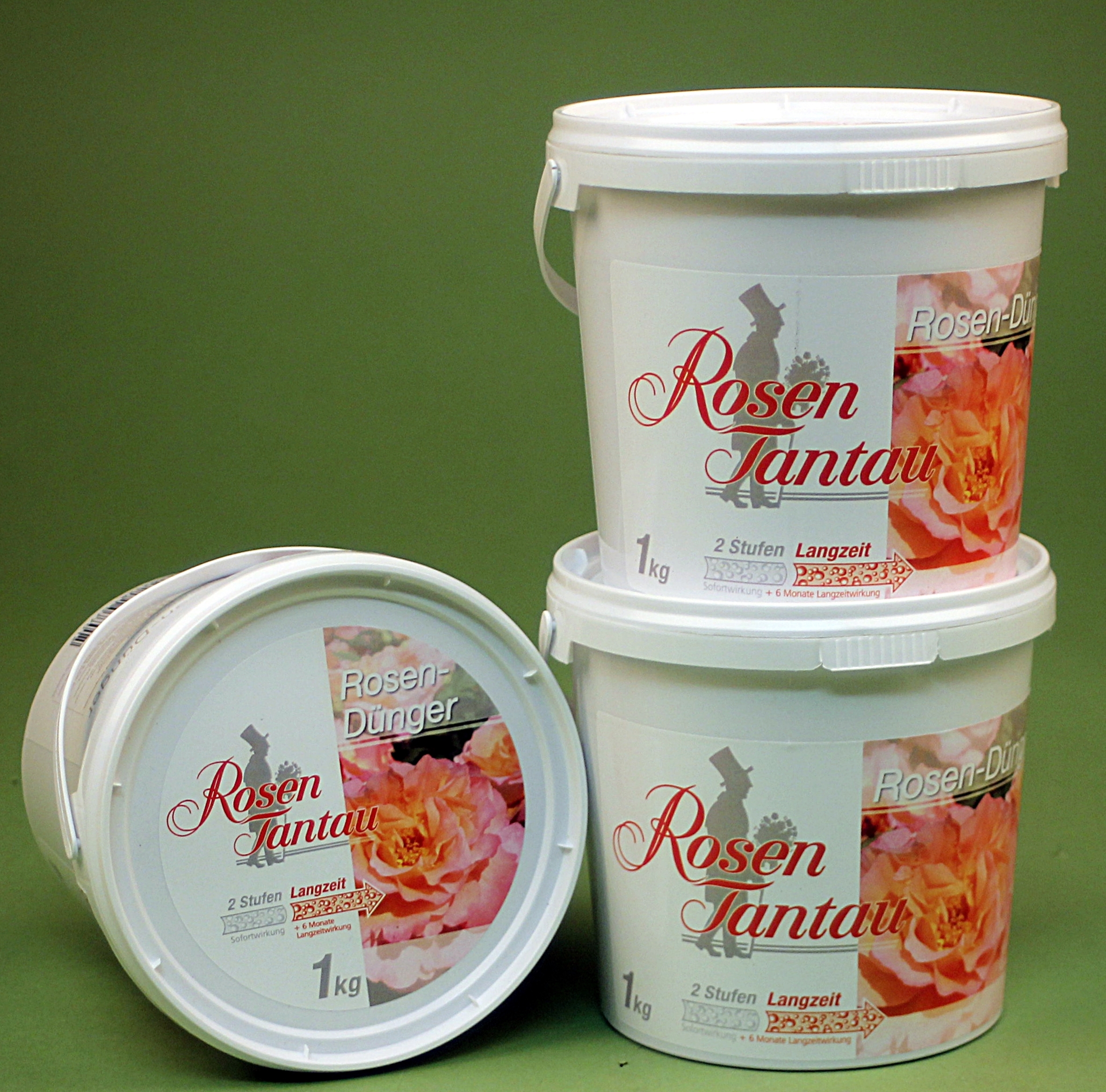Roses belong to the so-called heavy consumers, they need support for their development and nutrition of foliage and buds. Those who fertilize their roses are therefore doing them good in several areas: the plants not only grow better, but the nutrients also support the development of a true flowering beauty. Well-fertilized roses are also generally more robust and resistant: pathogens are less able to settle and are less likely to harm your plants. There are a few things to keep in mind when it comes to correct fertilizing - in our guide you can read everything important on this topic.
Rosen Tantau wishes you successful gardening!
Fertilizing roses: When is the right timing?
Not only the choice of the right fertilizer in the right amount, but also the timing is important - because proper fertilizing of your roses increases the winter hardiness and thus protects the plants from the dreaded freezing. As a general rule, you should fertilize your newly planted roses for the first time after the first bloom. In addition, roses usually receive fertilizer twice a year: At the end of June, after the summer pruning, you rely on mineral fertilizers. In spring, however, also after pruning, organic fertilizer is used - such as compost, dried cattle manure, Oscorna® rose fertilizer or horn shavings. Cattle manure in particular is a popular fertilizer, as it contains not only potassium and phosphate, but also nitrogen and micronutrients in a ratio that is appropriate for roses.
Would you like to avoid fertilizing twice a year? Then you can alternatively use so-called long-term fertilizers. When using long-term fertilizers with an effect period of 3-4 months, such as our Rosen Tantau Long-Term Fertilizer, refer to the instructions for use on the package for the dosage. Attention: Only with long-term fertilizers with an effect period of about 6 months, the re-fertilization is not necessary. Special rose fertilizer is available in powder form and as a liquid fertilizer.

Our pro tip: You should not fertilize after the end of July! The reason: fertilizer makes the shoots grow - but the younger and more immature they are in the cold season, the worse they come through the winter.
Tips for fertilizing in spring
When the forsythia is in bloom, it is generally time to pile off. Now is also the right time to fertilize your roses. If you have piled up compost, distribute it now when piling off and work it superficially into the soil. You can also do the same with organic fertilizers such as horn shavings, Oscorna® rose fertilizer or dried cattle manure. By the way, a professional soil analysis can help you choose the right fertilizer in spring: Roses, for example, need a lot of potassium and phosphate. If the supply from the soil is already satisfactory, for example, the use of horn fertilizer in spring is sufficient. Alternatively, you should rely on an appropriate special rose fertilizer, which you use according to the instructions.
How to fertilize your roses in summer
After the main bloom at the end of June/beginning of July, you should fertilize with a quickly available fertilizer to promote the next flush of flowers. The reason: The development of new flower buds on the fresh shoots is very draining for roses - accordingly, they now need the second fertilizer dose of the year.
Our pro tip: When using special rose fertilizer, do not use more than 2/3 of the amount recommended by the manufacturer. The reason: This is the only way to prevent the new shoots from still being soft and insufficiently woody at the beginning of the cold season - and thus being particularly susceptible to cold weather.
By the way, some hobby gardeners - in accordance with the principle of avoiding unnecessary waste - rely on coffee grounds, with which they fertilize their roses about every four weeks. Please note: Use only well-dried coffee grounds here to prevent mold. Eggshells (as a typical compost component) are also considered a popular natural fertilizer for roses.
